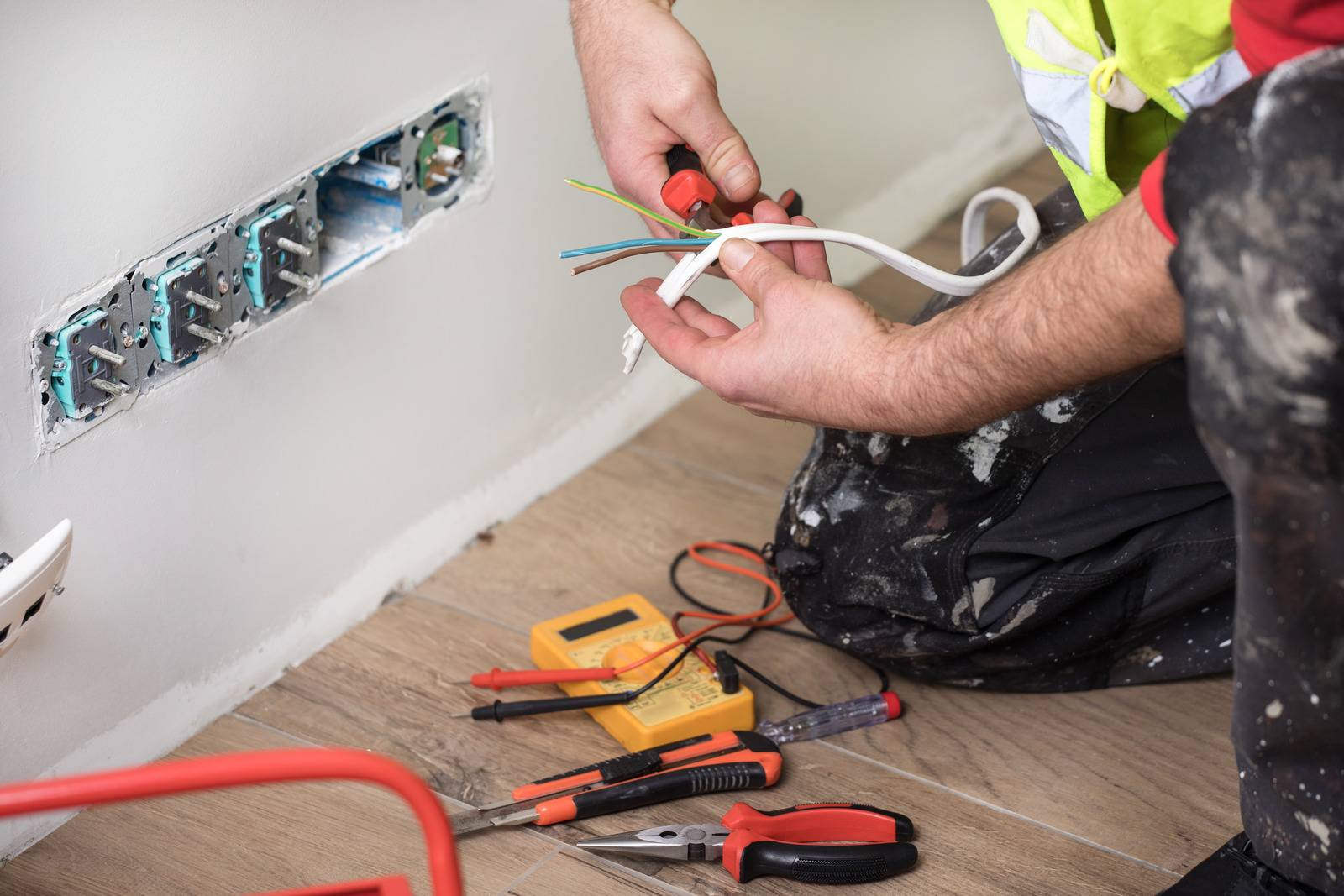Which Electrician for Each Type of Job? A Complete Guide
Whether remodelling your home, addressing electrical faults, or setting up new installations, knowing which electrician for the job is paramount.
The complexity and diversity of electrical works demand a keen understanding of who is best suited for each task. This post aims to demystify the process for homeowners, DIY enthusiasts, and property managers, making it easier to decide when and which reliable electrician you need to complete the job.
Qualified Electricians

Before we jump into the specifics of each job type, it’s crucial to understand what to look for in a qualified electrician. The right registered electrician should have a valid license, sufficient experience, and proper insurance coverage. Evaluating the specific needs of your project can also help determine the type of competent person you require, ensuring the job is done safely and efficiently.
Registered Electrician
To become a registered electrician , individuals must go through rigorous training and pass exams that cover various aspects of electrical work. They are also required to keep up with current regulations, codes, and best practices through continuing education.
An Electrical installation certificate or an Electrical Installation Condition Report (EICR) can only be provided by a registered electrician. This implies that if you wish to rent out your property, sell it, or show compliance with electrical regulations, a registered electrician is your go-to expert.
Public Liability Insurance Coverage
Apart from a valid license, it’s crucial to ensure that your electrician has proper insurance coverage. Public liability insurance safeguards you in case of any accidents or damage to property during the project. It also shows that the electrician values professionalism and is committed to providing quality services.
Types of Electrical Jobs and the Ideal Electrician for each job

Electrical work spans various tasks, each requiring a specific skill set. Here’s a breakdown of common electrical tasks and the ideal electricians to handle them:
1. Installations (Light fixtures, outlets, etc.)
Ideal Electrician: Residential Electrician
For typical home installations like light switch fixtures, ceiling fans, or new outlets, a licensed residential electrician is your go-to. They are experienced in navigating the unique electrical systems of homes and ensuring that everything is up to code.
2. Comprehensive Rewiring Jobs
Ideal Electrician: Master Electrician
For extensive electrical wiring and rewiring, especially in older homes that need to be brought up to modern standards, a master electrician has the expertise required. Their advanced knowledge guarantees that comprehensive projects are managed with the utmost safety and compliance and to building regulations.
3. Commercial Electrical Works
Ideal Electrician: Commercial Electrician
Commercial properties have different electrical systems and building regulations. Hiring commercial trusted electricians ensures that installations, repairs, and maintenance tasks are performed according to commercial standards and building regulations which differ significantly from residential settings.
4. Industrial Electrical Services
Ideal Electrician: Industrial Electrician
Industrial settings such as factories or plants require reliable electricians with specialized knowledge of complex machinery and high-voltage systems. An Industrial qualified electrician is trained to handle the scale and complexity of these environments and work safely.
5. Emergency Repairs
Ideal Electrician: Emergency Electrician
When facing an unexpected electrical issue that poses immediate risk, such as power outages, sparking outlets, or exposed wiring, an emergency electrician provides swift service to prevent potential hazards.
DIY vs. Professional: When to Call an Electrician

While the DIY route might be tempting for minor repairs or installations, electrical work often requires a professional competent person with expertise due to the risks involved. Small jobs like changing a lightbulb or resetting a tripped breaker can be safely managed on your own. However, for most electrical work, including wiring installations, panel upgrades, or troubleshooting faults, calling a professional good electrician ensures safety and compliance with local codes.
Hiring Process and Red Flags
Finding a trustworthy local electrician involves research. Start by seeking recommendations, checking online reviews, and verifying licenses and insurance of local electricians. When interviewing candidates, ask for references and detailed quotes. Be wary of red flags like significantly lower bids (which could indicate cutting corners), reluctance to provide credentials, or poor communication.
At GetmeDigital.com you can find good electricians near you, our electricians listed have all been vetted beforehand to give you peace of mind when hiring.
Conclusion
Choosing the right electrician for each type of job not only ensures the safety and efficiency of your electrical systems but also protects your property from potential damage. Remember, electrical work is not just about fixing problems; it’s about ensuring your home or business operates smoothly and safely long into the future and meets building regulations. Don’t hesitate to seek the services of a qualified and experienced electrician for all your electrical needs.

